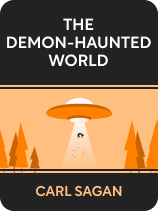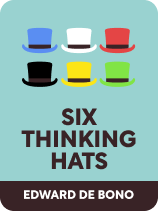

This article gives you a glimpse of what you can learn with Shortform. Shortform has the world’s best guides to 1000+ nonfiction books, plus other resources to help you accelerate your learning.
Want to learn faster and get smarter? Sign up for a free trial here .
What is critical thinking in psychology? What are some things you can do to improve your critical thinking skills?
In psychology, critical thinking is an active process of thinking that involves understanding and applying the various levels of cognition to enhance one’s understanding. Specifically, critical thinking involves evaluating information for weaknesses, drawbacks, and inconsistencies.
Below, we’ll explore what critical thinking is, what happens when it’s lacking, and why modern culture discourages it. Then, we’ll provide a few suggestions for developing your critical thinking skills.
The Dangers of a Lack of Critical Thinking
When reasoning, we naturally defer to conventional thinking and our intuition, which is our ability to reason subconsciously. However, conventional thinking and intuition are shaped by inflexible assumptions, which means they can be rigid.
For example, the practice of bloodletting–withdrawing someone’s blood for medicinal purposes–was part of conventional medical practice because it fit neatly with Humorism, the theory that we’re composed of four humors (blood, phlegm, black bile, and yellow bile). Since Humorism was an entrenched assumption, it led to a rigid belief in the efficacy of bloodletting for roughly 3,000 years until the practice was largely discredited in the late 1800s.
In light of this rigidity, conventional thinking and intuition can mislead us in situations where they’re inappropriate. For instance, in the case of bloodletting, the conventional assumptions of Humorism misled physicians into harming their patients.
While something like that won’t happen in the modern day, this example illustrates what happens when we rely on conventional thinking and intuition instead of critical thinking: We believe things we shouldn’t and that could be dangerous.
In the modern day, lack of critical thinking skills makes people make harmful pseudoscientific claims. Many people believe there are aliens among us, or that crystals hold some form of cosmic energy that can be harnessed, and that somewhere in the depths of the ocean lies the lost city of Atlantis. Such beliefs appeal to our emotions—they can instill in us a sense of wonder, a departure from the mundanity of our everyday lives.
However, such supernatural and pseudoscientific beliefs can cause considerable harm. As they become more widespread, so does our sense of credulity—our propensity to believe in things without proof. A credulous society will be less critical and less open-minded, because most of us will simply believe what we want to believe.
| How Commercial Culture Discourages Critical Thinking Commercial culture erodes our critical faculties in order to make money. Skepticism doesn’t sell. For one, you are much more likely to encounter false or misleading claims through the various sources of media (television, radio, newspapers) than you are actual science. Exaggerated headlines and pseudosciences appeal to our emotions, engender more attention, and thus, generate more profits. For this reason, you’re likely to encounter many false or misleading claims through various sources of media (television, radio, newspapers, and online sources): Furthermore, consumer culture regularly deceives and misdirects its customers in order to sell products. We’re constantly encouraged to buy things without thinking too much about what we’re buying, or if the claims about the efficacy of the product are even valid. Even “real scientists” promote products for personal gain, at the expense of the consumer and science alike. Commercial culture cultivates a general sense of credulity amongst the population, which is then used to feed you more baloney and extract more of your money. |
How to Improve Your Critical Thinking Skills
So, how can you improve your critical thinking skills so you don’t fall prey to harmful pseudoscientific claims and lies of the media?
In psychology, critical thinking is the mode of thinking where you evaluate an argument for its deficiencies and weak points. To reveal them, you should ask yourself these questions:
- What’s wrong with this argument?
- What are the flaws?
- What might go wrong?
- What happens if… (negative event)?
- What happened in the past when people tried to do this?
- What do we risk by taking this course of action?
- What’s the worst possible outcome?
It’s important to note that critical thinking draws significantly on the past: It considers past experiences and uses this to make logical projections into the future.
Most critical thinking revolves around the word “but”:
- “That marketing plan sounds okay, but I’m not sure it fits the current retail environment.”
- “Earlier bedtimes for the kids are a great idea. But it’ll be tough to get them on board.”
Watch Out for Authority Bias
In addition to finding inconsistencies and weak points in an argument, critical thinking involves questioning the source—where the information is coming from. When you accept the information at face value because it comes from an authoritative source, you fall prey to what is known as authority bias in psychology. Critical thinking is also the ability to look past the source, no matter how authoritative it may seem.
For example, Aristotle claimed that objects of different weights will fall at different speeds and that claim was widely accepted as true for over a millennium. Galileo Galilei famously decided to put this idea to the test and discovered that objects fall at the same velocity regardless of weight.
In doing so, he identified a bias in his foundational understanding: a claim he only believed because an authority had passed down that knowledge. When he questioned that claim and decided to test it for himself, he was able to fix a broken piece of his foundation.
Authority bias can have far greater consequences than perpetuating misconceptions about gravity.
Stanley Milgram is well-known for his experiment that demonstrated the effect of authority bias on our behavior. His intention was to study how humans were able to be convinced to carry out atrocities such as The Holocaust. The results demonstrated that a majority of participants obeyed orders to cause another person physical pain because they were told to do so by someone who seemed like an authority.
This concept mirrors the ideas conveyed in the writings of Hannah Arendt, who coined the phrase “the banality of evil.” Arendt argued that most of the people who carried out the Holocaust were not psychopaths or people otherwise unbothered by human suffering, but were people who failed to examine and question the things they were being told to do by authority figures. She suggests that it is a lack of critical thinking that leads to such atrocities.
Based on this, it seems logical that practicing a method of thinking that would dismantle this type of bias could not only benefit the individual, but could also serve to prevent large-scale destructive or harmful behavior such as war and genocide.
Still, while Galileo’s method may have been ideal, most of us don’t have the resources to personally test every single piece of information we’re given. Especially since the internet has exploded our ability to share ideas, a vital tool in navigating all this information is being able to assess the reliability of a source of information.
Questioning is perhaps the best way to accomplish this, and experts offer some specific methods of questioning to suss out how much credence you should put in a particular source.
They specifically recommend that you assess:
- Whether a source is offering information that is up-to-date
- Whether it relates to what you’re trying to learn about
- What expertise the source has on the matter
- Where the source got its information
- What reason the source had to put this information out there
Sometimes a source is not only biased but is also engaging in deliberate misinformation to achieve personal or political goals. This type of misinformation or propaganda often appeals to our emotions in order to manipulate us and can often be identified using critical thinking.
Final Words
We’re so self-confident in our rationality that we think all our decisions are well-considered. However, most people vastly overestimate their critical thinking faculties: They ignore data and they weigh evidence inappropriately. If we’re to create an intelligent society, we must learn how to think critically and teach our children to do the same.
If you enjoyed our article on critical thinking in psychology, check out the following suggestions for further reading:
You likely believe that precise knowledge is valuable and that maintaining strong beliefs shows integrity. Yet social scientist and Wharton professor Adam Grant disagrees, arguing that reconsideration, or the ability to reconsider your views, is much more valuable than knowledge or loyalty to your beliefs.
Grant’s research shows that knowledge and expertise often confine you to narrow ways of thinking that limit your potential. He argues that instead of pursuing expertise, you should practice and pursue reconsideration because it opens new doors of learning and self-awareness—and, as a teachable skill, reconsideration is something you can develop, share with others, and apply to your life and work.
Every decision carries risk. We don’t always think in terms of risk, and maybe that’s why we’re prone to making irrational decisions. But what if we worked on keeping risk at the forefront of our minds?
Annie Duke discusses how her decades-long poker career helped her develop decision-making strategies based on the idea that all decisions are bets. Being immersed in the game enabled her to observe how people make decisions in a setting where every choice leads to a clear outcome—winning or losing money. That’s what a bet is: a decision with quantifiable risk.

Want to fast-track your learning? With Shortform, you’ll gain insights you won't find anywhere else .
Here's what you’ll get when you sign up for Shortform :
- Complicated ideas explained in simple and concise ways
- Smart analysis that connects what you’re reading to other key concepts
- Writing with zero fluff because we know how important your time is








